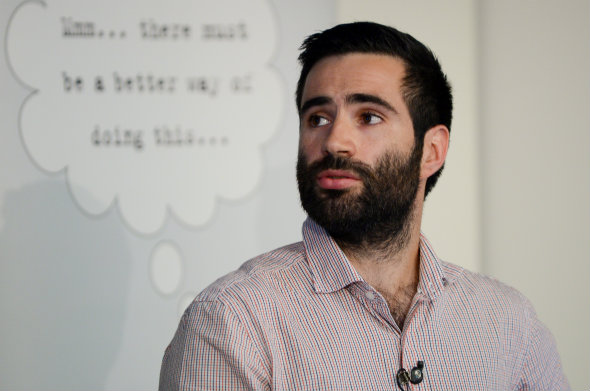Regular interaction is the key to establishing a lasting and collaborative relationship with your audience, according to Erntst-Jan Pfauth, publisher of Dutch-language in-depth news platform De Correspondent
Pfauth told delegates at the news:rewired conference, today in London, that De Correspondent’s collaborative endeavours were entirely in line with is business aims, which are to create a platform free of advertising that relied on a ‘membership’ model to create a dedicated reader base, rather than just a target audience.
The reader base, he said, represented an essential untapped reserve of information. The role of the journalist, he added, should be to lead conversations and establish a collaborative relationship with those readers.
If you take your readers’ comments seriously, and if you invite your journalists to participate in those comment discussions, readers can be very valuable… you have access to the best Rolodex on Earth.
Speaking on the same panel as Pfauth, Antoine Laurent (pictured above), senior project manager at the European Journalism Centre, agreed, saying that collaboration doesn’t just have to be limited to your readership. He said collaboration can play a significant role in investigative journalism, adding that websites such as journalismgrants.org promoted closer working between different agencies with its supply grants for funding such schemes.
Laurent gave the example of how freelancers investigative journalists often work as a useful model. Collaborative teams often process large amounts of data – a feat which would be difficult for a solitary project – and are then able to make as wide an impact as possible by looking for media organisations across different countries to publish their work . Examples of collaborative, investigative journalism can be found at www.detective.io, he said.
Lyra McKee agreed, but added that investigative journalism can be an expensive venture. She highlighted her own time investigating the death of Northern Irish politician Robert Bradford. McKee said that despite failing to achieve funding, perseverance lead her to Beaconreader and ultimately funding that enabled her to continue to investigate the story.
She said:
When you really believe in a story, you will do anything to get out there.
McKee added that using social networking can also be a useful way in gathering following as a journalist. McKee said she regularly blogged about stories she was working on. As a result, a community developed around her blog and readers began assisting her.
They were less like readers and more like people who were invested in my work.
As well as interacting with readers, there are now tools available to help journalists collaborate with each other on a global scale. Platforms such as Hostwriter gives journalists a way to communicate and collaborate – from sharing information to helping put them up for a stay, the website dubs itself as a kind of ‘social network for journalists’.
Felix Franz, an ambassador for Hostwriter, said a side-effect of the organisation is that it can make journalism cheaper, but the primary goal is to make collaborative journalism better. Franz said despite being launched this year, Hostwriter has already establsihed a decent following.
He added:
Hostwriter is still a baby but people seem to be excited about it.

